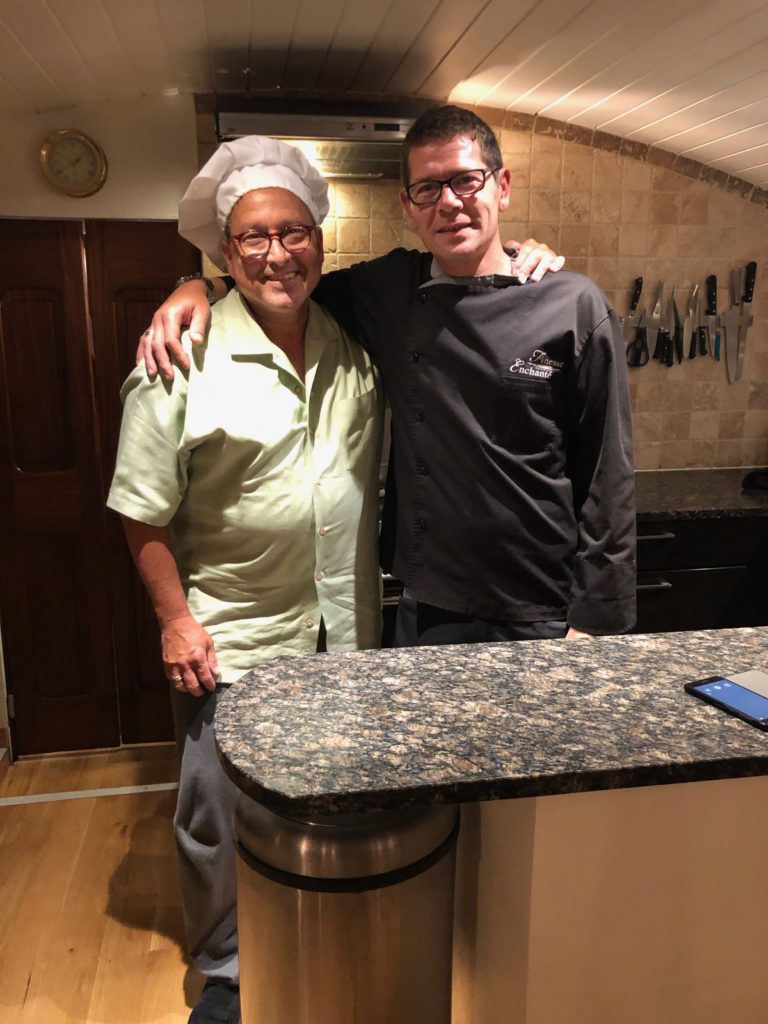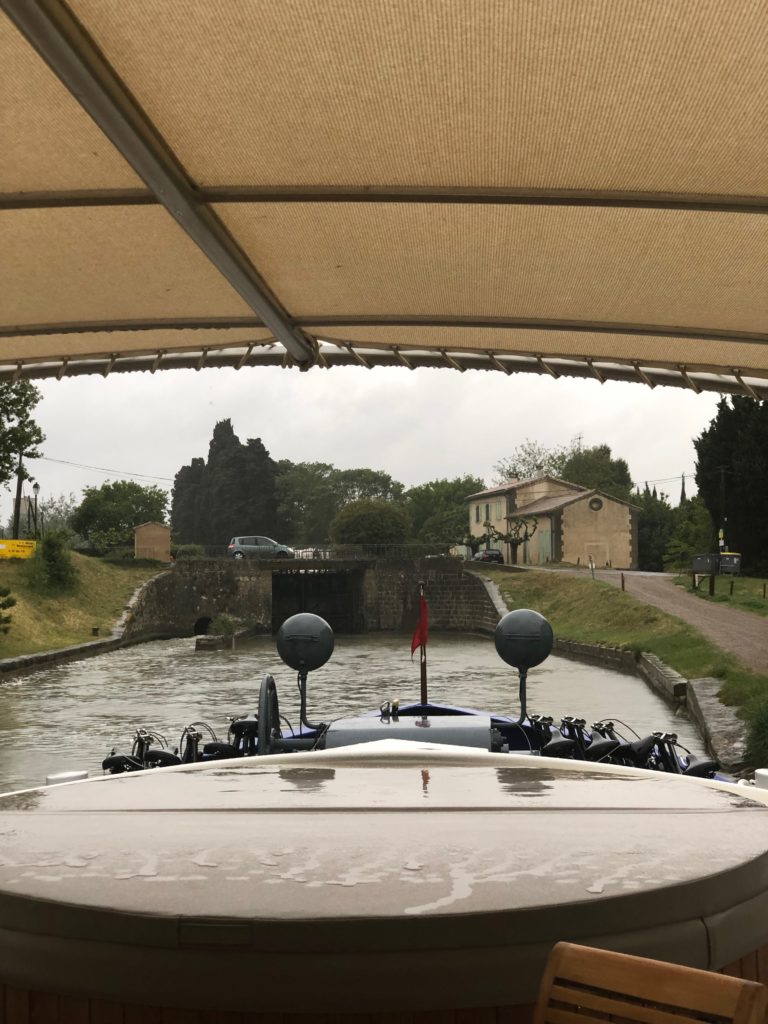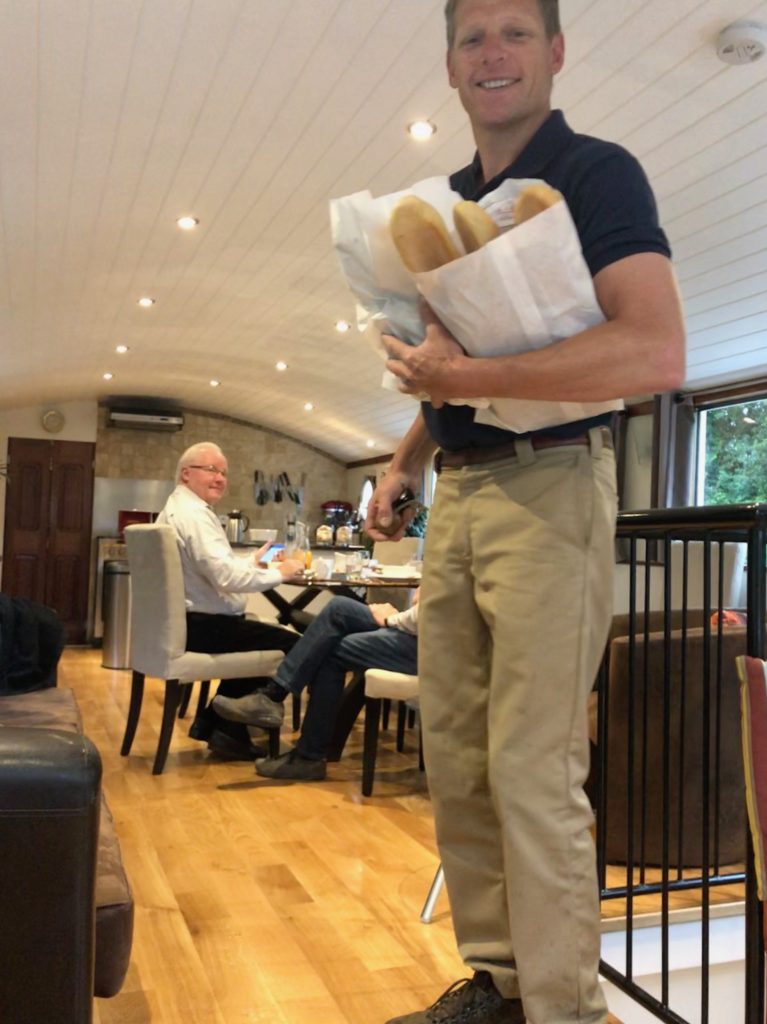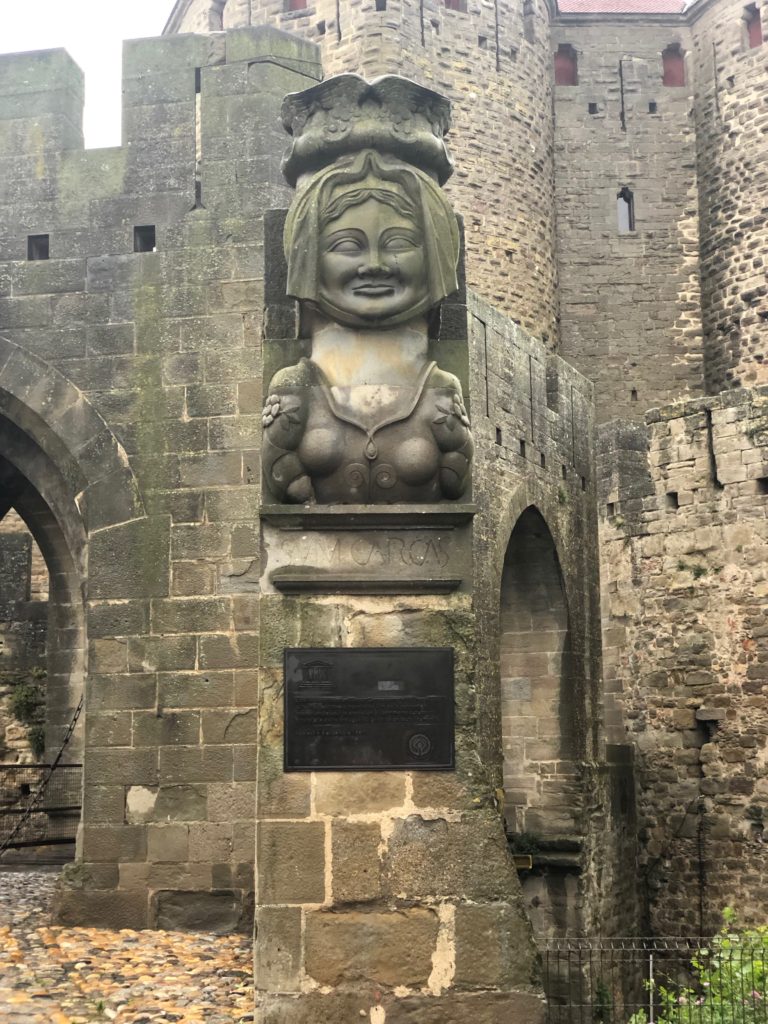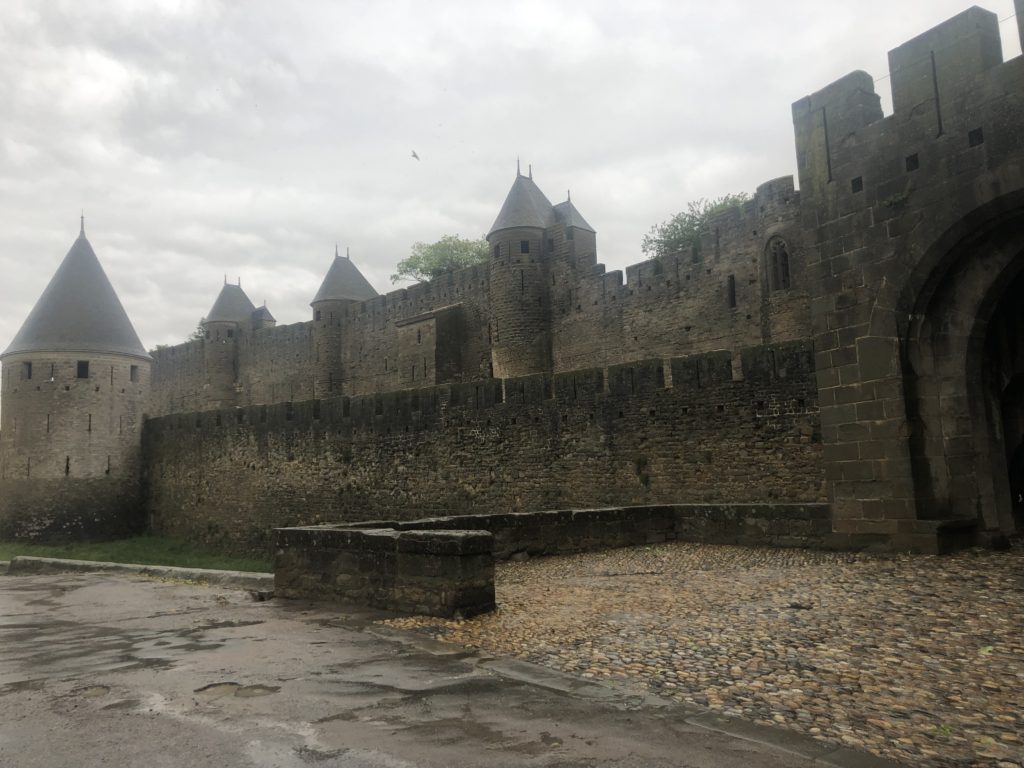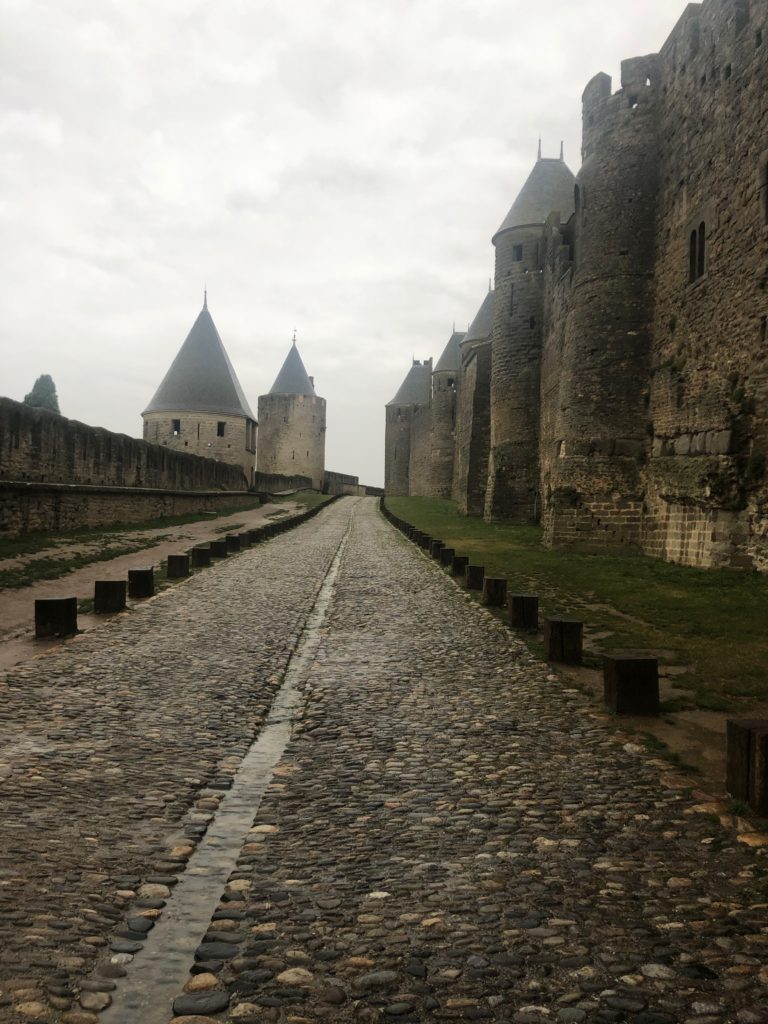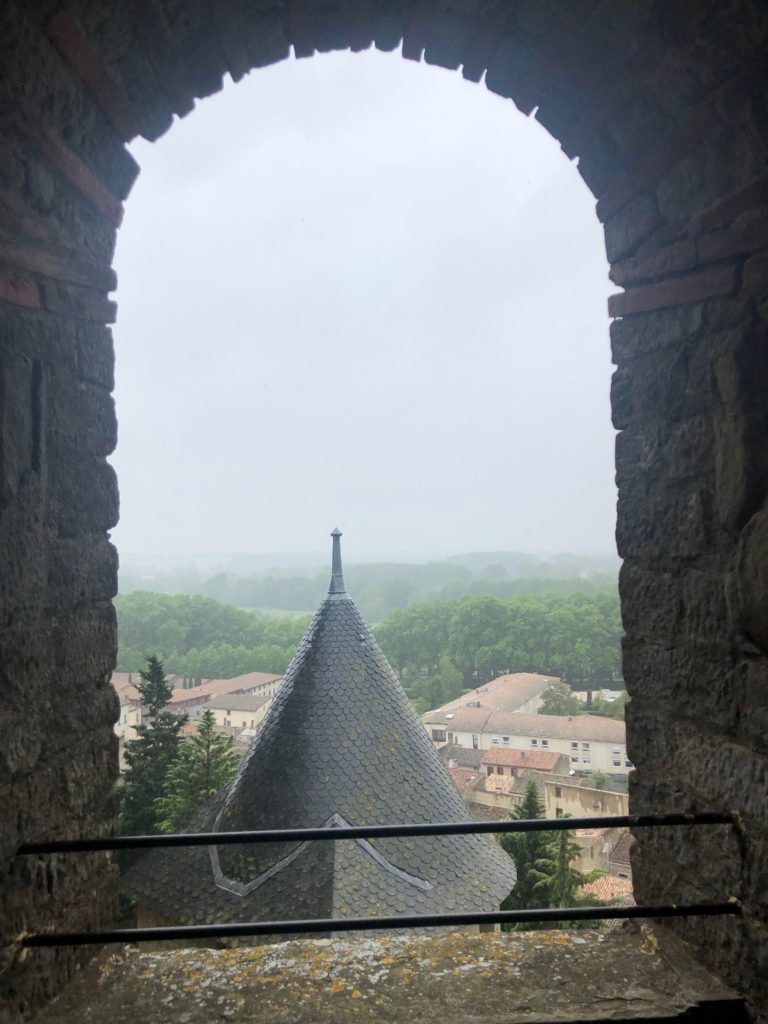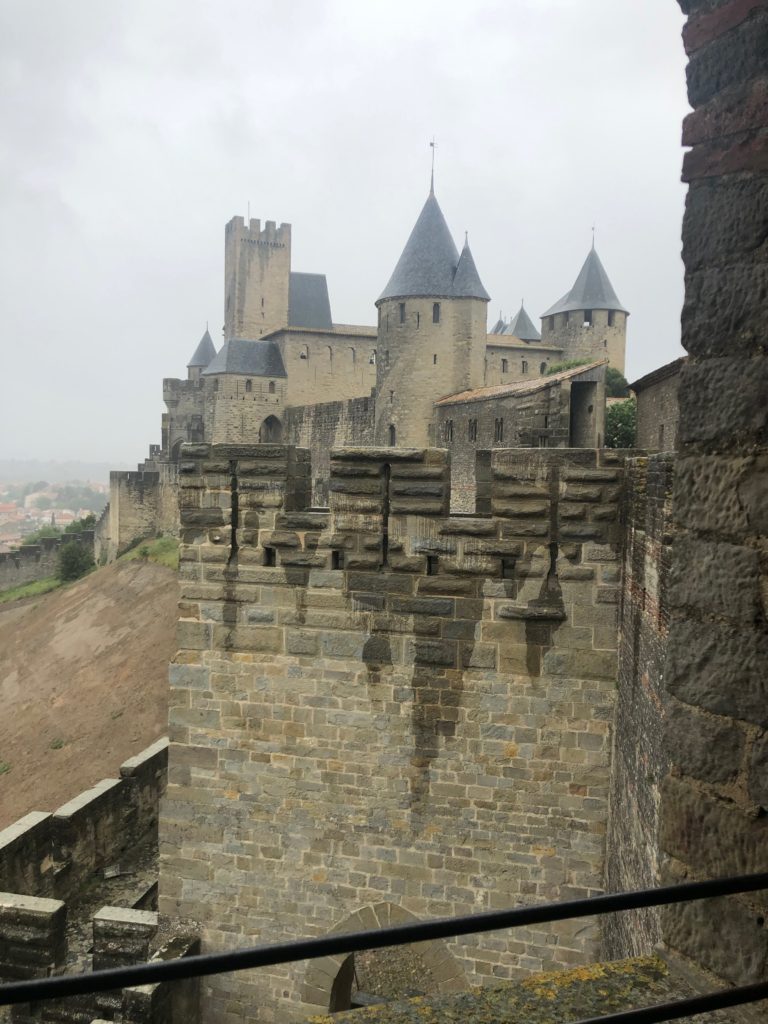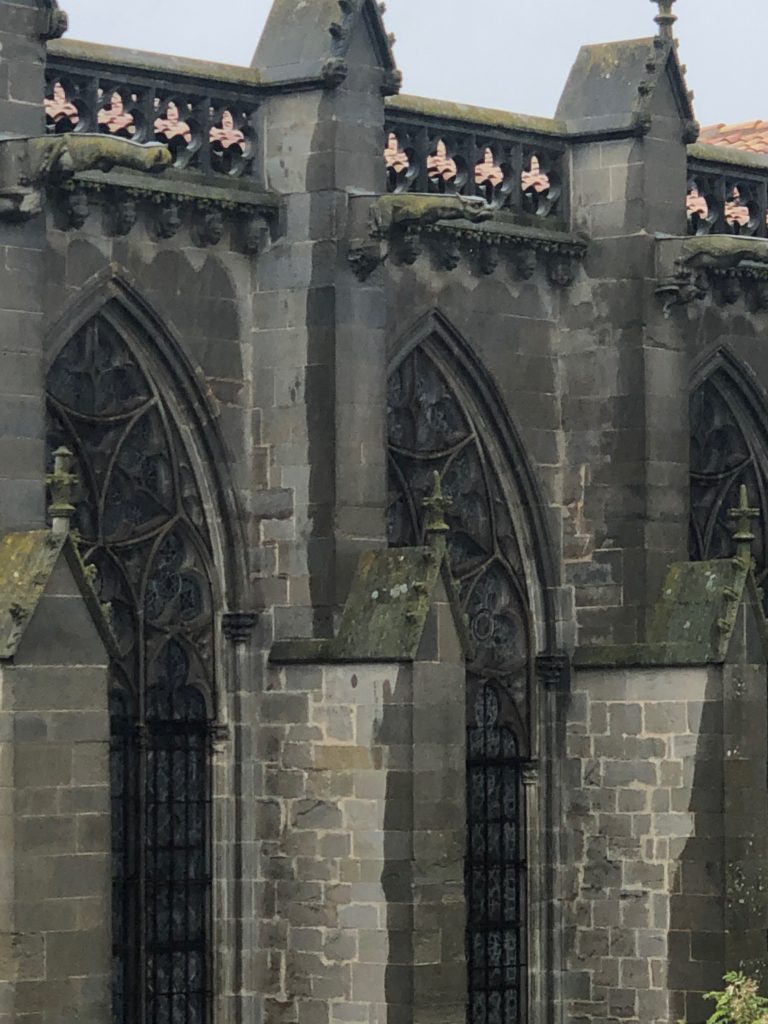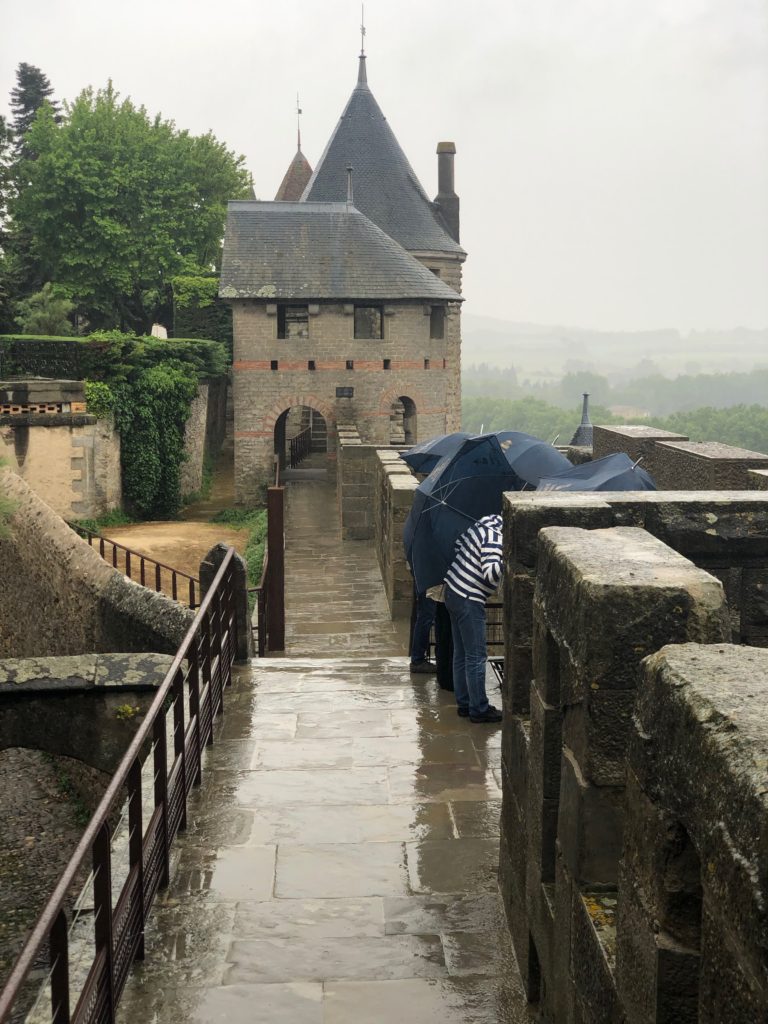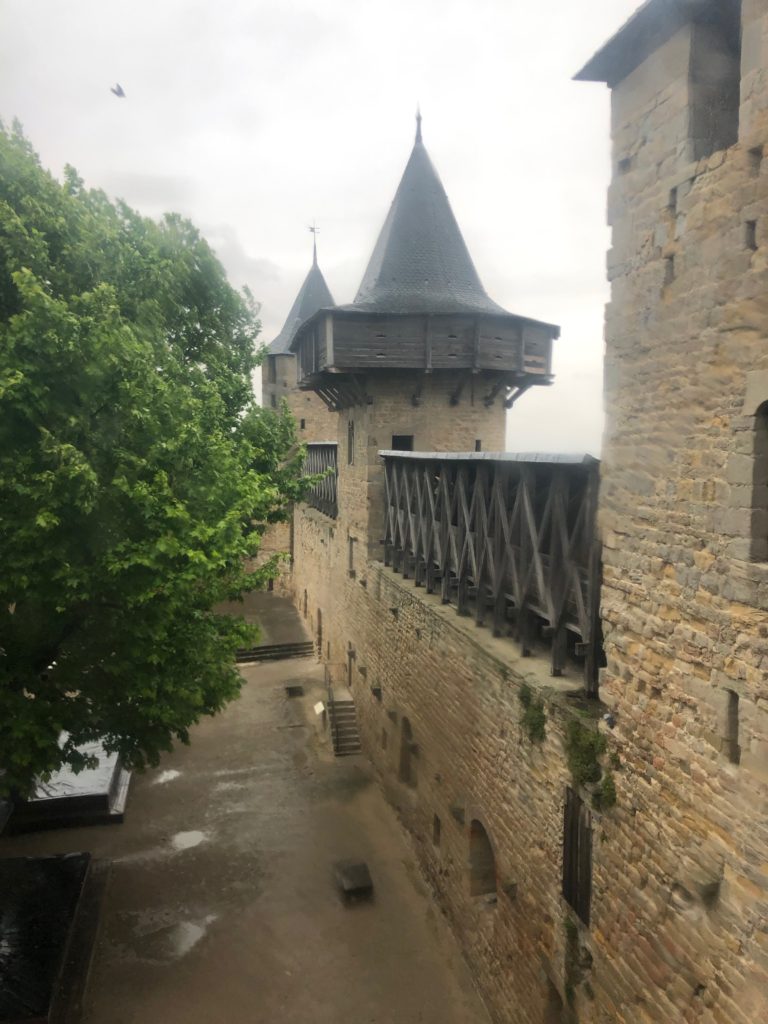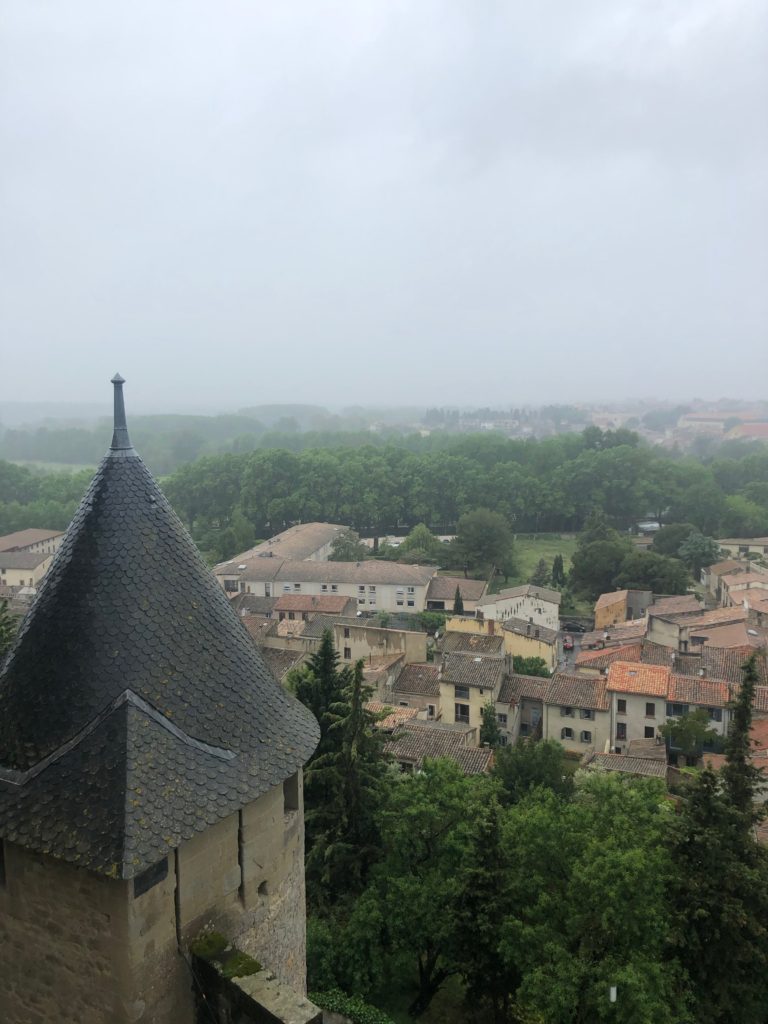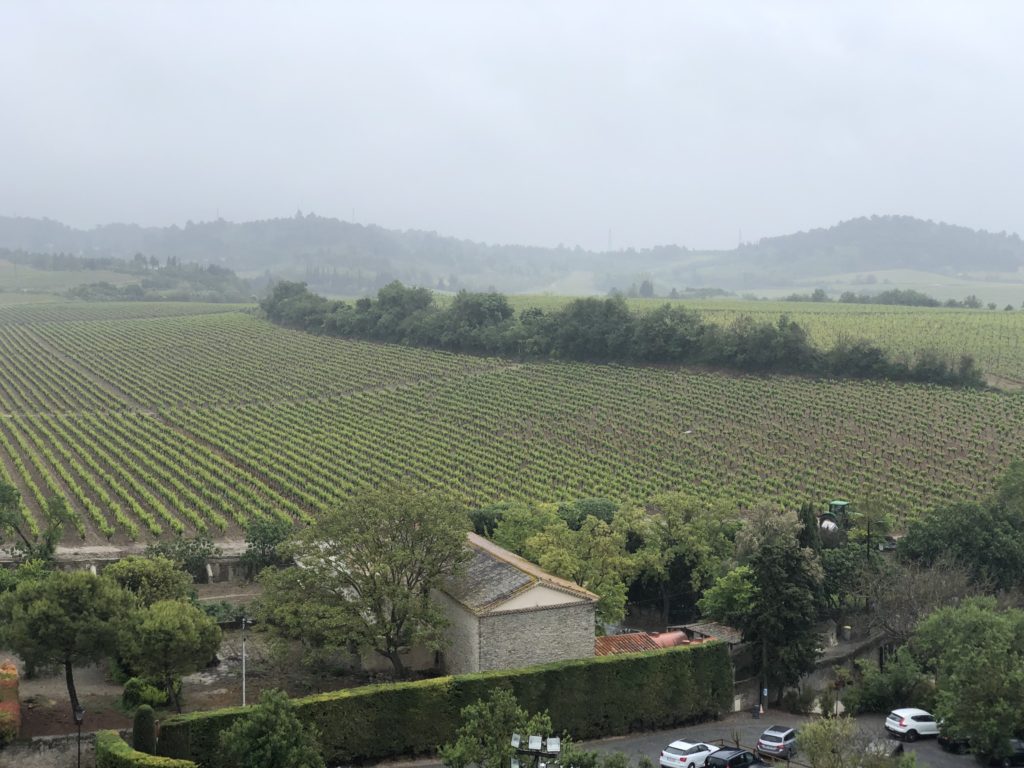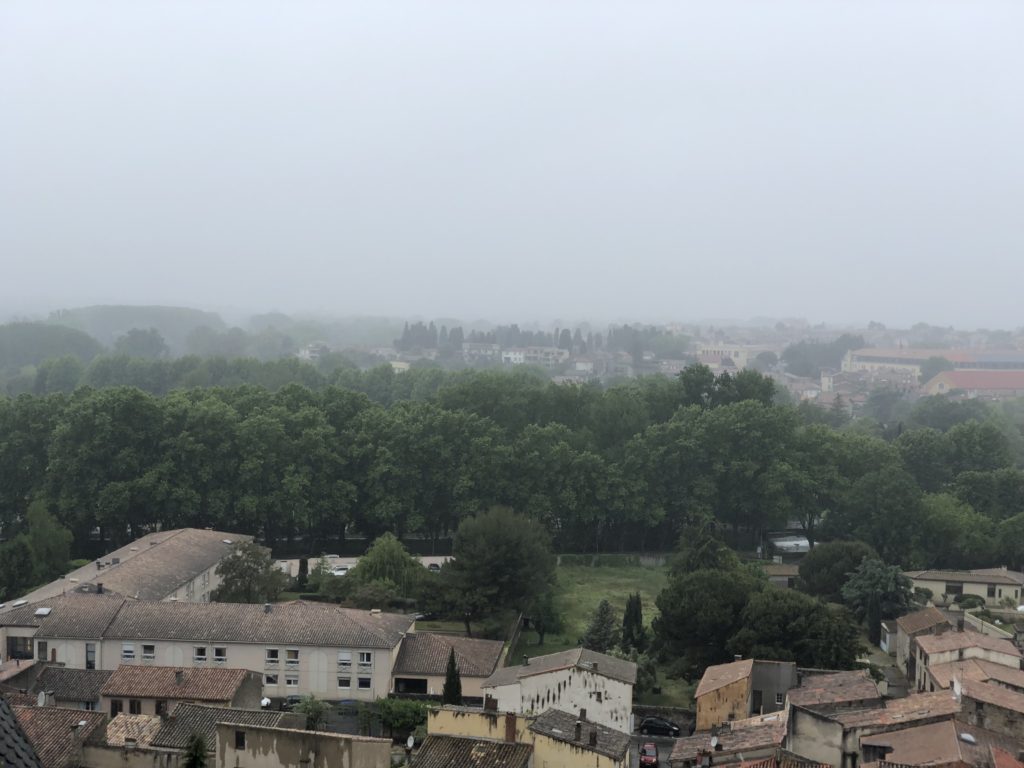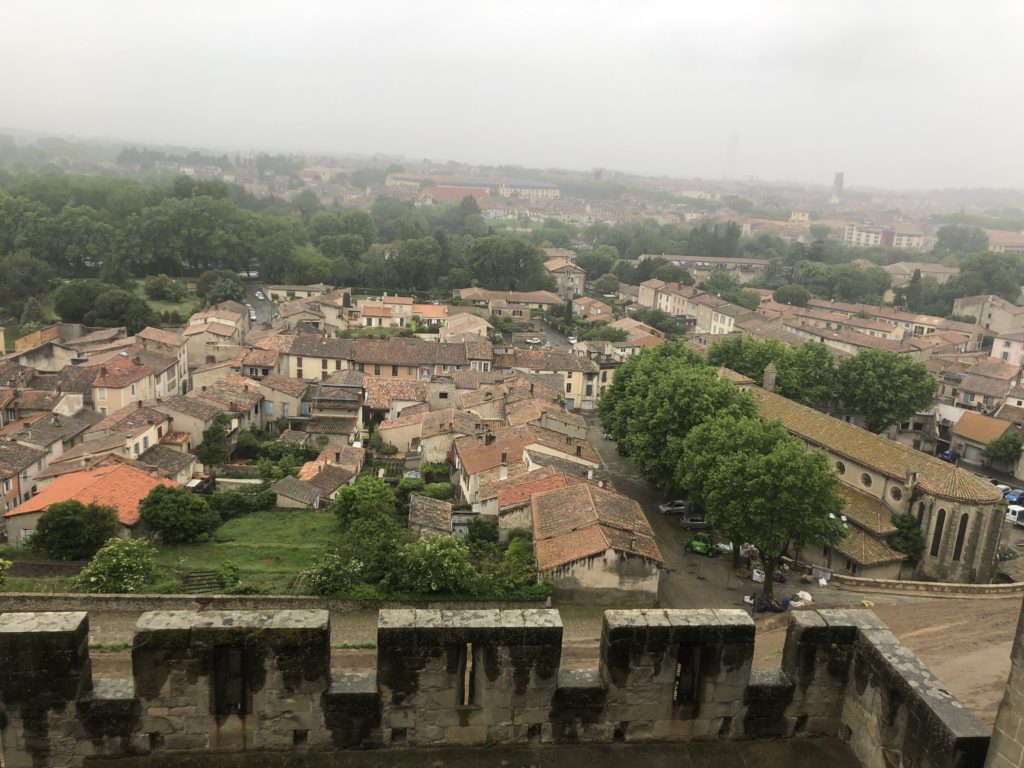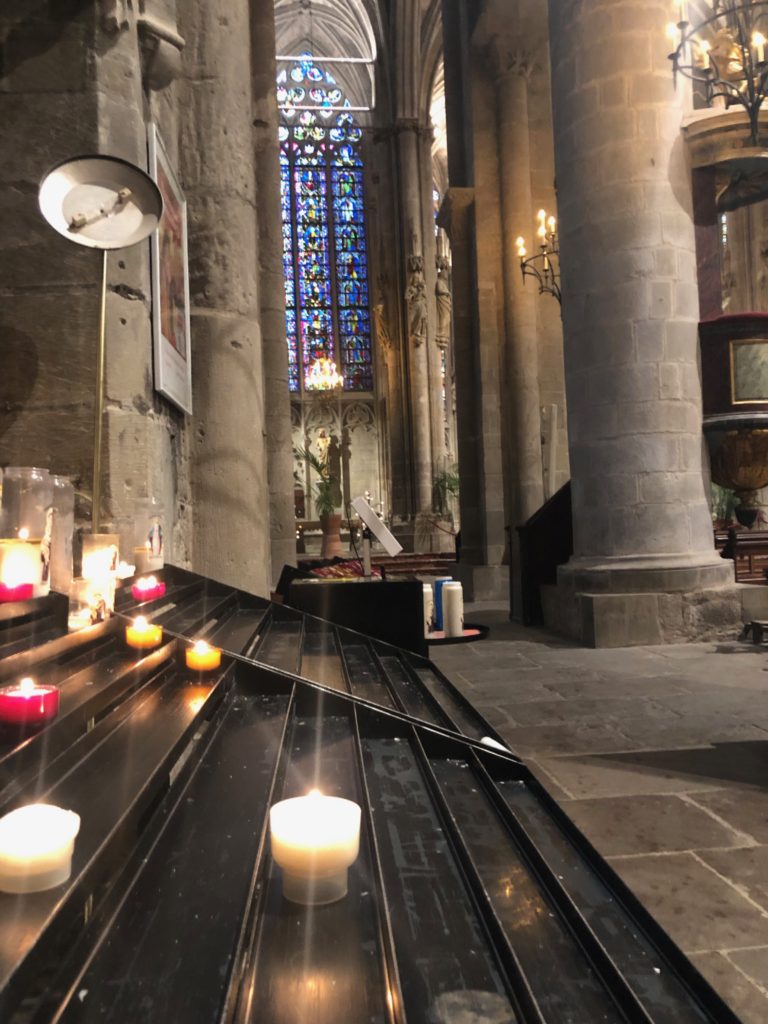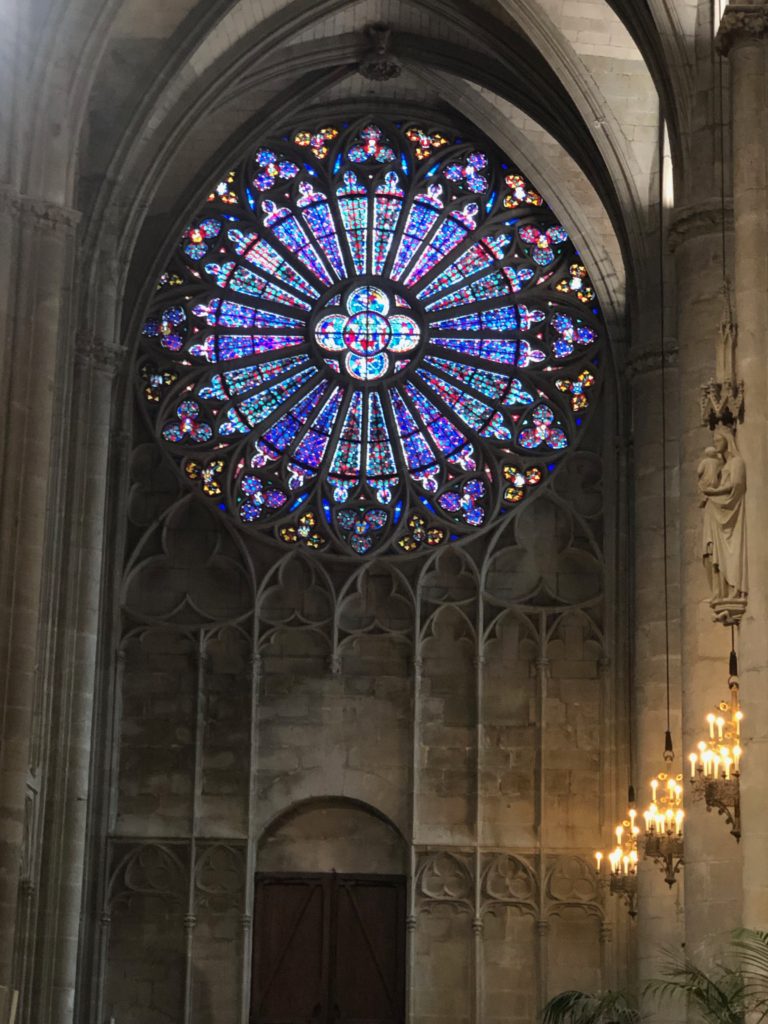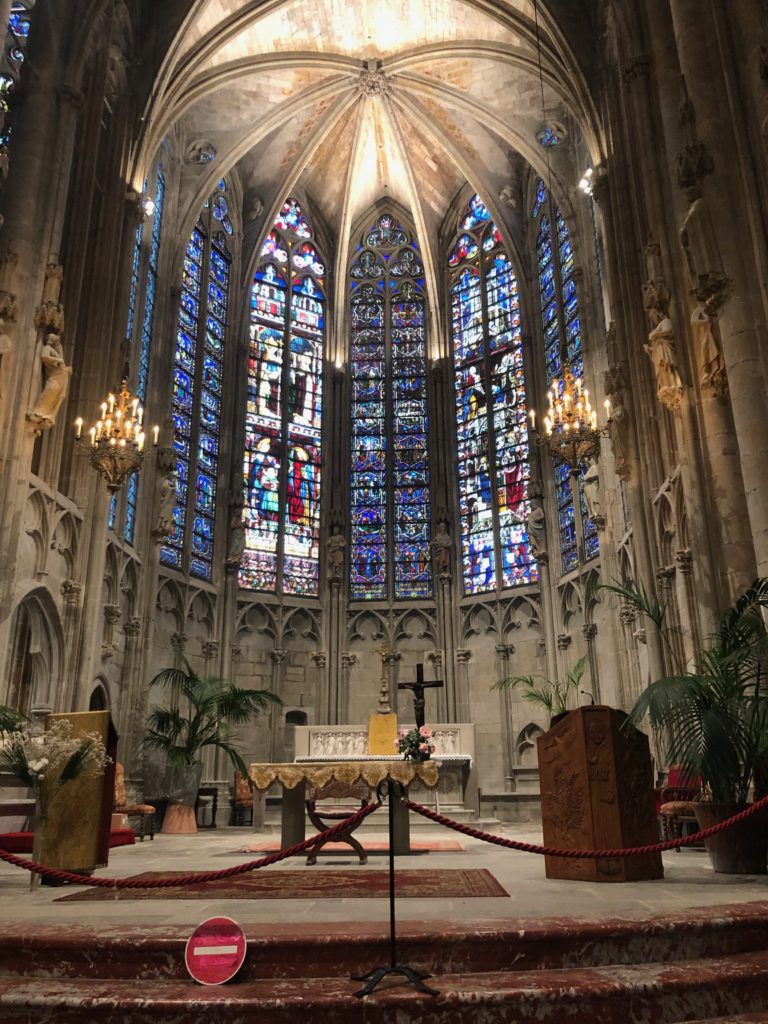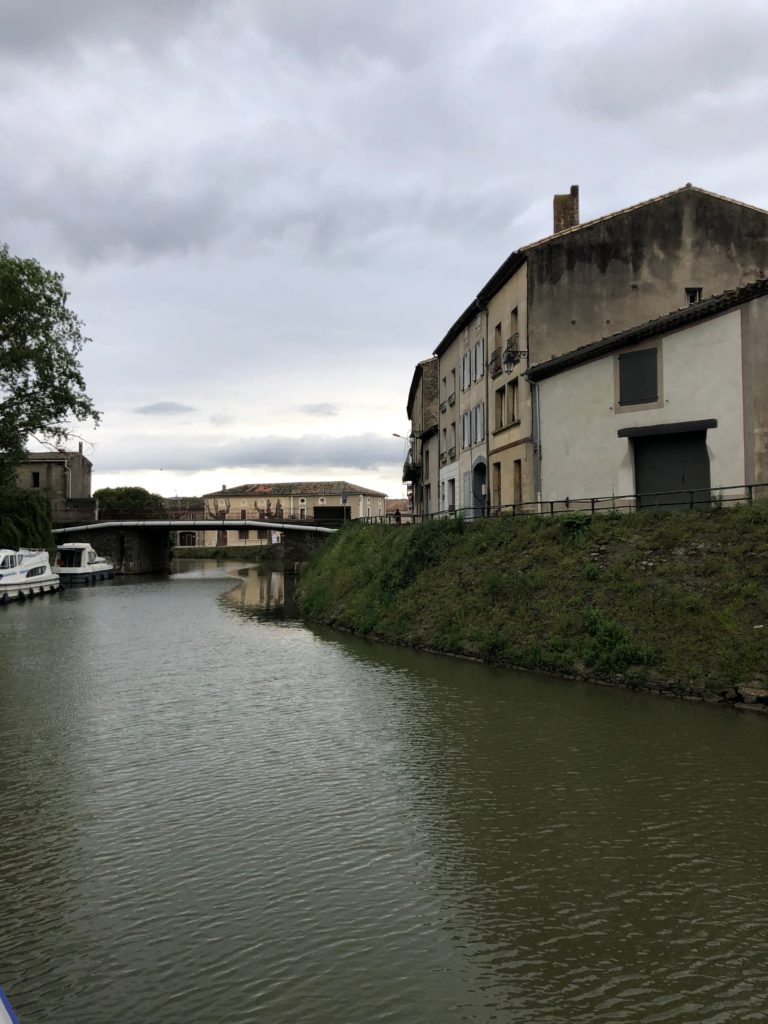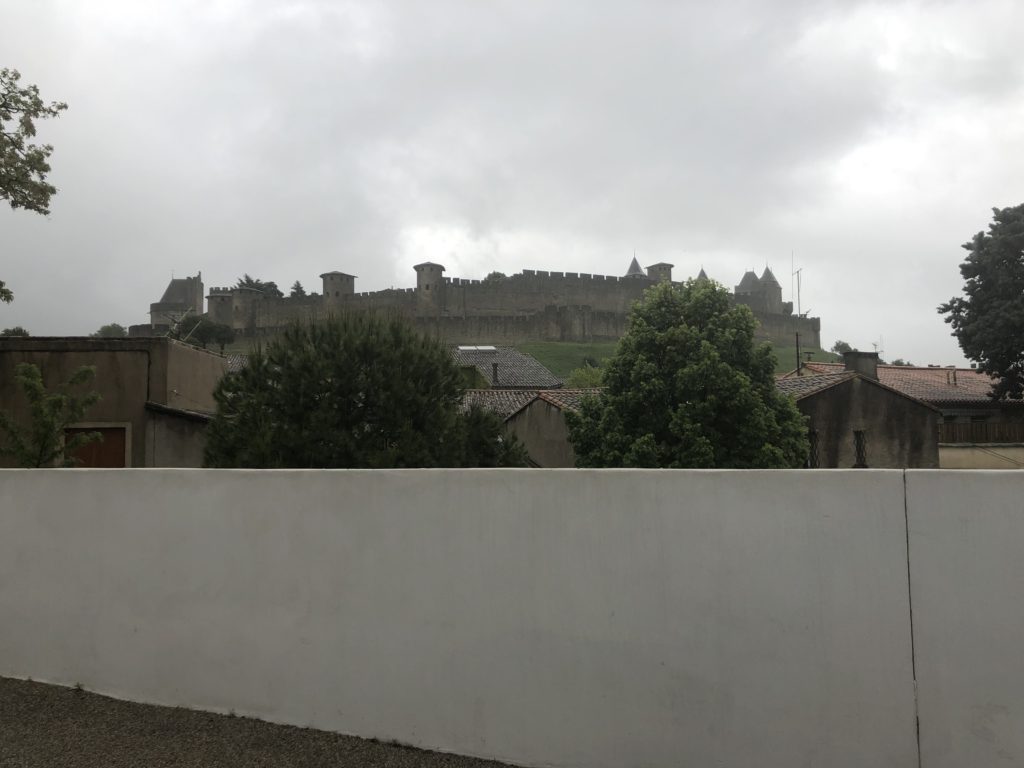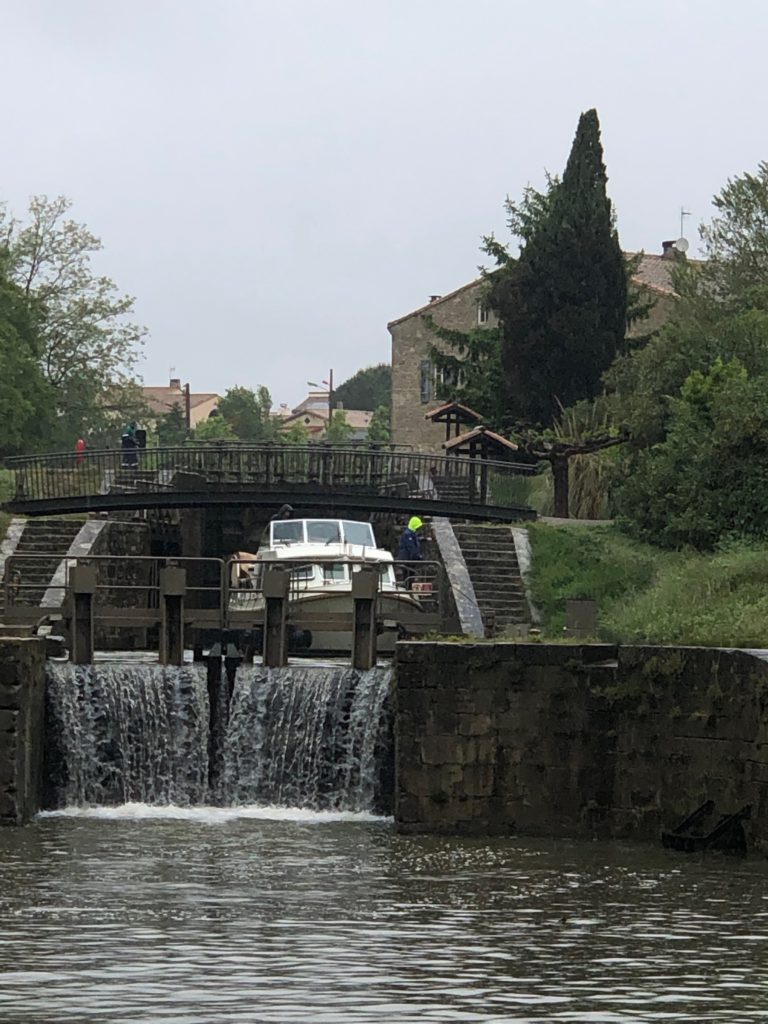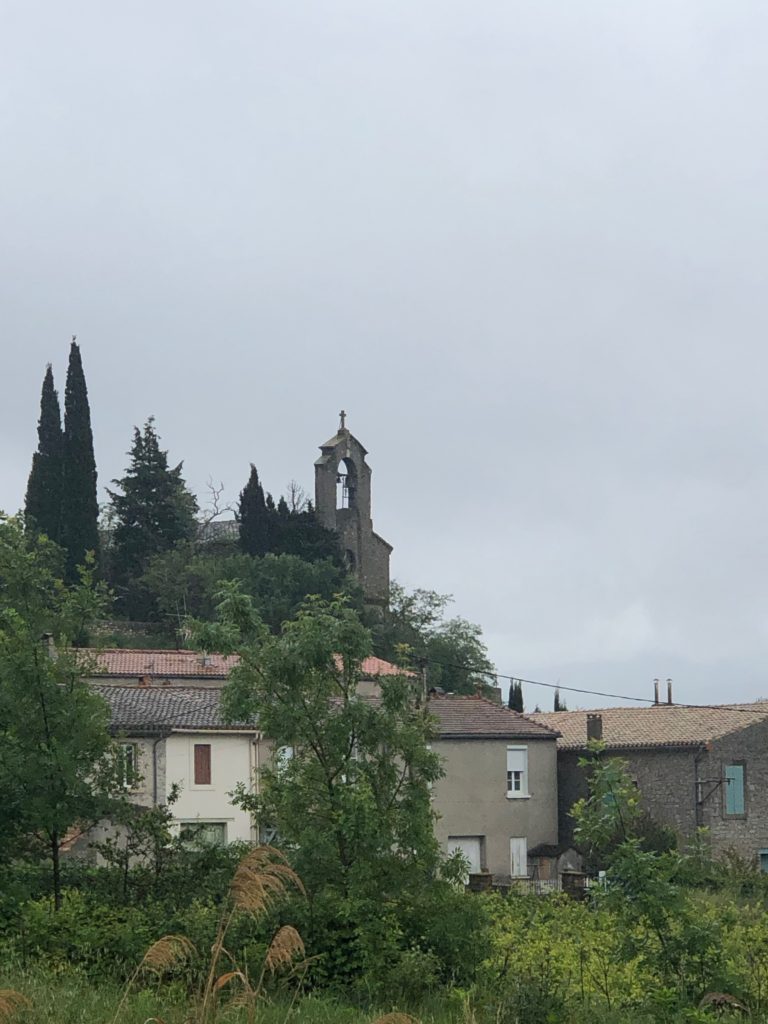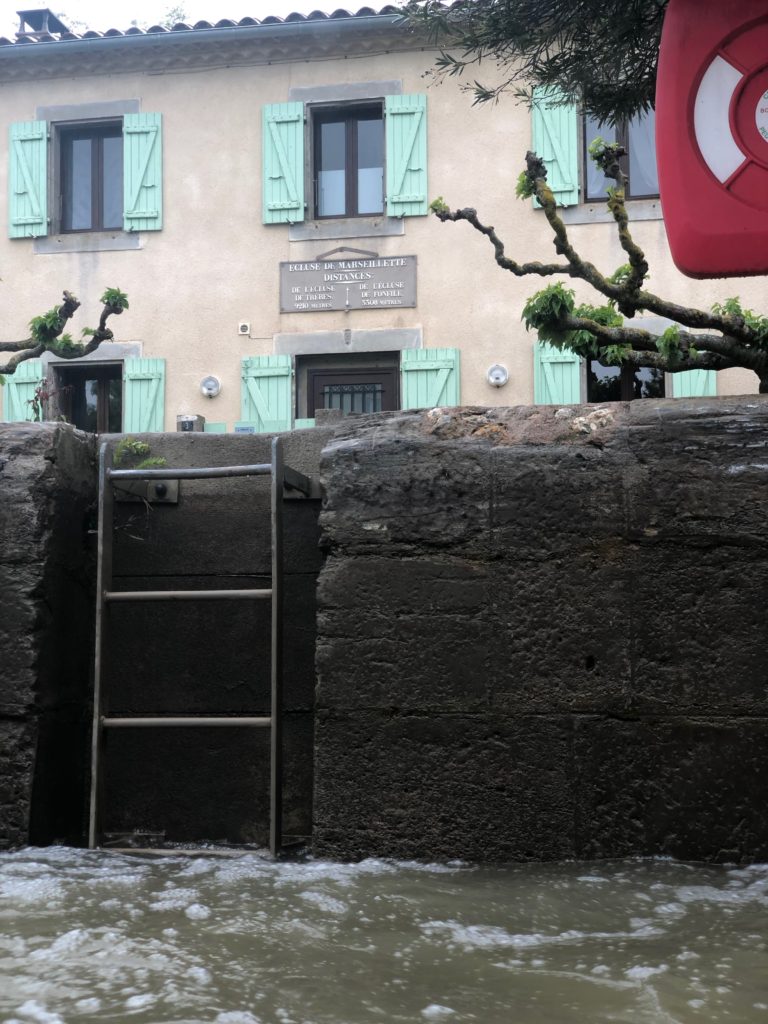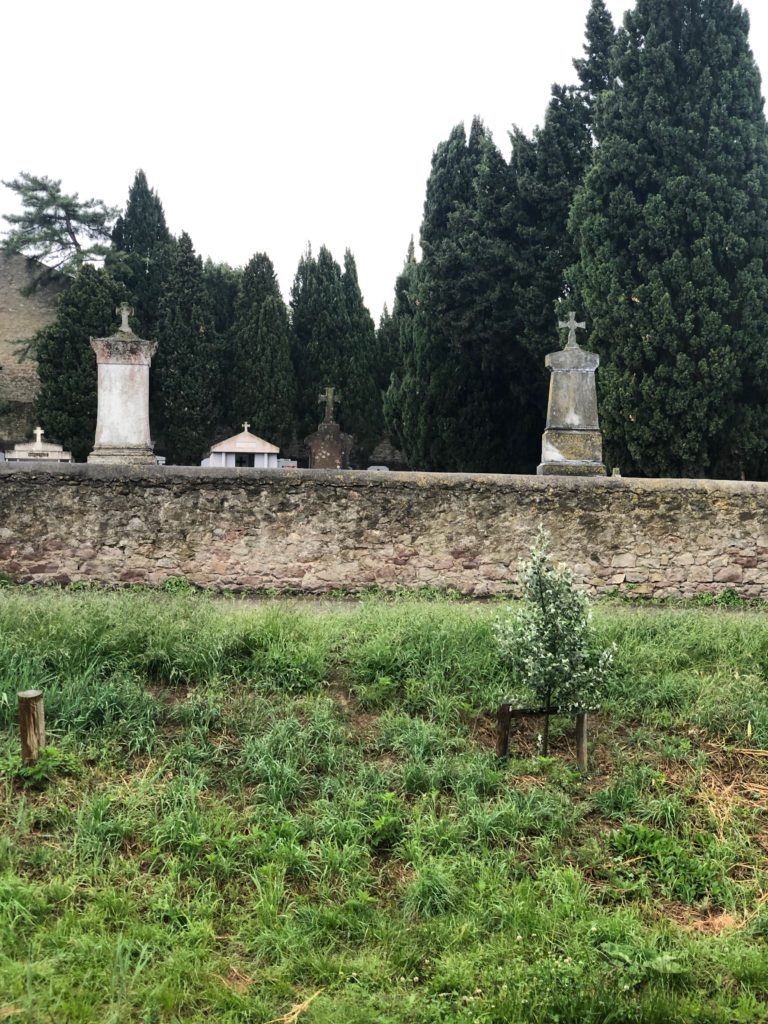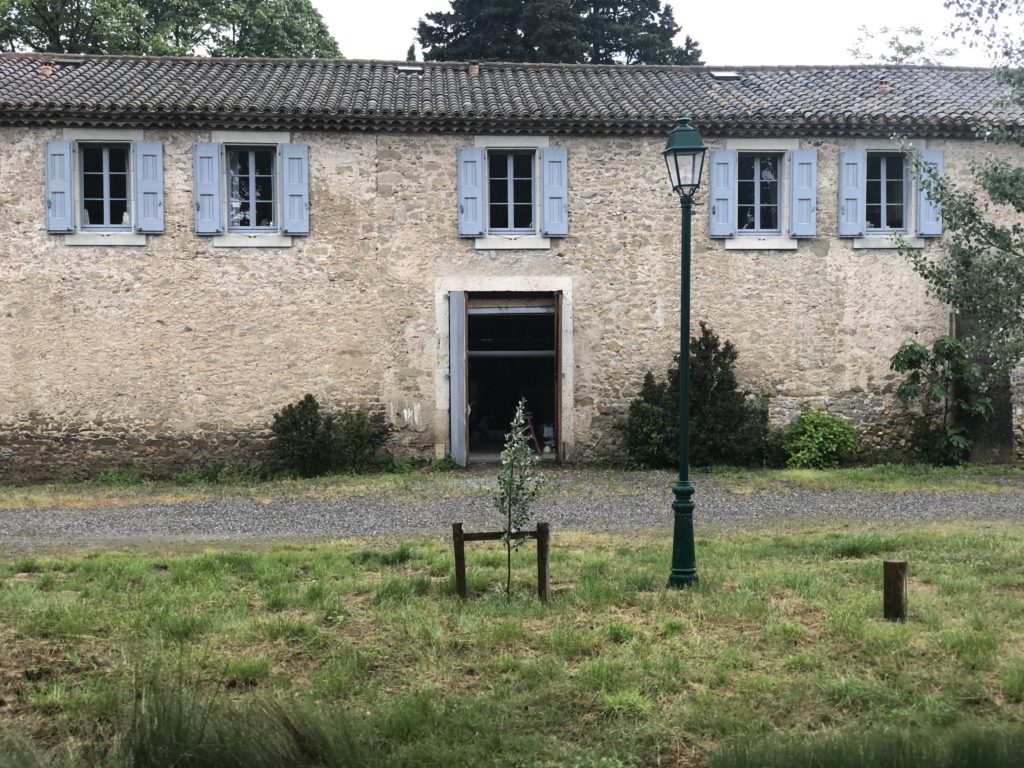Bonjour, Campers! Finally the French have deviated from perfect weather to rain and clouds. Actually, the perfect way to view Carcassonne – no crowds and the dark sky increases the imposing nature of the fortress. Regardless of the weather, the crew deliver fresh bread every morning, even the captain.
After breakfast we hopped on the van for a trip to Carcassonne, a city inhabited since the neolithic period. Until the Treaty of the Pyrenees transferred the border province of Roussillon to France in 1659, Carcassonne was on the Catalonian border and completely contained within a double walled citadel. During a papal siege in 1209 a surrender treaty allowed the citizens to leave their fortified village and inhabit the valley below giving way to today’s city limits. The citadel, known as the Cité de Carcassonne, is a medieval fortress dating back to the Gallo-Roman period and restored by the theorist and architect Eugène Viollet-le-Duc in 1853. It was added to the UNESCO list of World Heritage Sites in 1997.
Although she appears to be a fictional character, a bust of Lady Carcas stands guard over the entrance and her legend provides the etiological origin for the Carcassonne name. The plaque below honors the UNESCO World Heritage designation.
O’er the ramparts we climbed and learned about stairways built to make climbing difficult for an enemy in armor and advantage the defender and took in the view of the modern city originally inhabited by the fleeing citizens.
The cathedral within the walls is of two distinct periods. The nave is romanesque and plain, the altar, built as a pride of French victory is fine gothic tracery.
Turns out, gargoyles function brilliantly.
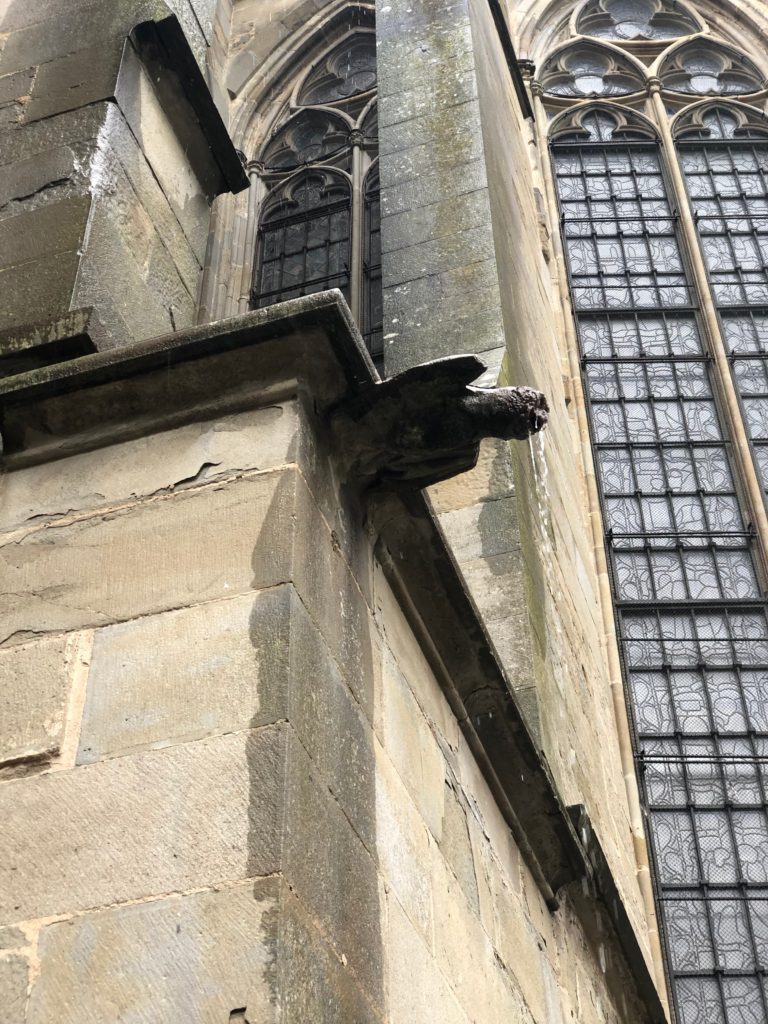
We returned to the barge, and enjoyed our final cruise through a misty rain.
Billboard on the Canal du Midi.
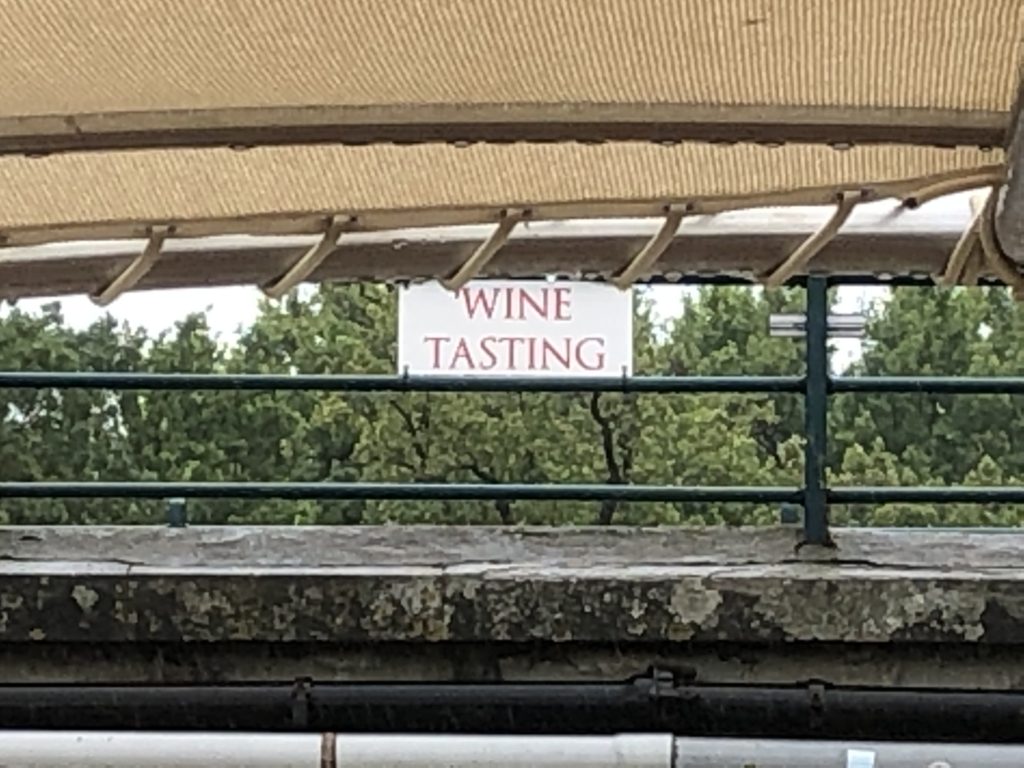
After a final dinner (more to come on the cuisine), Sylvain presented my sous-chef toque which I will cherish.
